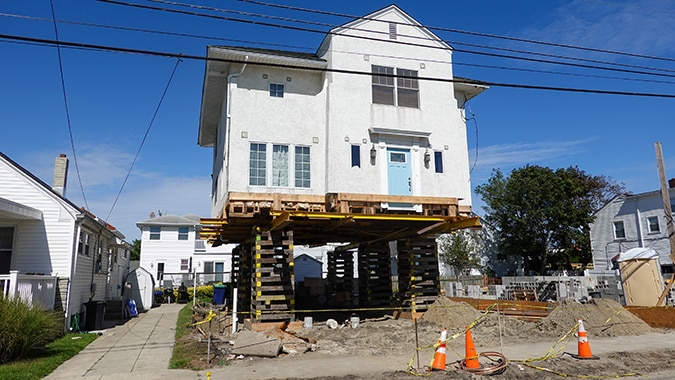I have returned from maternity leave and am jumping back into the policy fray. Thank you to all that helped Melanie Willoughby out while I was spending time with my new baby. I know that there are many complex components to the environmental realm and the more business advocates the better. Now that we are into 2017 and a lame duck Governor, the policy scene looks destined to heat up even more. With that in mind, I’d like to gauge committee members for input:
What issues are of concern to your company?
What would you like to see brought up in legislation/regulation this year?
What do we need to focus on for the next administration?
What do we need to press DEP on this year?
But before we delve into the issues of 2017, I thought it would be helpful to look back at 2016. Last year, several pieces of legislation were signed into law, while many more were considered but never passed the final step and many regulatory efforts were implemented by DEP. It is useful to see what we championed and fought back against as we plan for this year. Here are the highlights:
Legislation:
Public Access—2016 started off with an emergency piece of legislation (S-3321) that gave the Department of Environmental Protection (DEP) the authority to require, as a condition of CAFRA and waterfront development permits, that applicants provide on-site public access to the waterfront and adjacent shoreline. Off-site public access is permitted if DEP determines that on-site access is not feasible. The law is a response to an appellate court decision invalidating DEP’s public access rules.
Following that legislation, Senator Smith in January announced the formation of a public access stakeholder group, which NJBIA co-chaired. The group convened over a three-month period and developed a consent/non-consent report that contained multiple recommendations. In August, a joint meeting of the Senate Energy and Environment Committee and Assembly Environment Committees met to consider S-2490, which was supposed to be the “consent” bill and turned out to be anything but that. S-2490 is still being worked on and has not passed committee yet.
Electronic Waste—The first time the legislation (A-4763/S-2973) was passed in 2016 at the end of session, it was vetoed by the Governor. Then the Legislature reintroduced the same bill (A-2375/S-981) in the new session at the end of January. In an attempt to have the bill signed, the sponsors asked DEP to work on amendments with stakeholders. Throughout the year talks proceeded. In late fall, DEP had presented amendments they developed but had not been agreed to by the sponsors. Further talks proceeded and a bill was passed with amendments. The Governor signed legislation in 2017.
Lead in the Water—The detection of lead in the drinking water of Flint, Michigan brought heightened awareness to the aging infrastructure in New Jersey. NJBIA opposed bills that (A-3399 and S-2062) diverted $20 million from the Societal Benefits Charge to fund public building lead remediation. While we are not opposed to cleaning up contamination, other funding sources such as the Environmental Infrastructure Trust provide mechanisms for such cleanups. In a rare political occurrence, environmental groups joined Sara to testify against the bill also stating opposition to the raiding of clean energy funds.
Drinking Water Quality Institute—This legislation (A-4095/S-2468) would empower an advisory council within the DEP to have regulatory powers without the rule-making policy and procedures followed by other agencies. Industry strongly objected to the bill, and Senators openly debated the merits of policy, procedure and process. In the end, Senators did amend the bill to provide for more of a regulatory structure and the bill was second referenced. NJBIA opposed the legislation.
Passaic River Cleanup- Fought back against legislation (A-1799/S-2419) that would have removed liability from certain responsible parties for clean-up of the Passaic River. NJBIA opposed this bill and argued that a permit is a permit regardless of what the entity is and if a permit is violated, the permitee should be held responsible.
Bottle Bill—A throwback to the 1970s, the Smart Container Bill (A-2281) would impose mandatory deposits on beverage containers. In an attempt to fund certain water infrastructure projects, the Legislature had considered a bill that would have disrupted current recycling efforts statewide. NJBIA opposed this bill. It was second referenced.
Bag Tax— In an attempt similar to the bottle bill, the bag tax (A-3671/S-2349) looked to add a fee to carry out plastic bags at retail and food establishments to fund local projects. This legislation was heard in the Assembly Environment and Solid Waste Committee, but did not move.
Flood Hazard Rules Repeal—Fought against (ACR-160/ SCR-66) concurrent resolutions to prohibit the adoption of DEP’s proposed rules and regulations to revise its Flood Hazard Area Control Act Rules, Coastal Zone Management Rules, and Stormwater Management Rules. A resolution was reached with the DEP before the Legislature took the final act to invalidate the rules.
Permit Extension—Legislation (A-3617/S-2390) to extend the expiration date of permits in Superstorm Sandy impacted counties. NJBIA supported these bills since they extend for one year, the permits within areas that are still recovering from the storm. Signed into law in 2016.
Food Waste—Dealt with legislation(S-771) that would have required large food waste generators to separate and recycle food waste and amended the definition of “Class I renewable energy.” It was released from the Senate Energy and Environment Committee and second referenced to the Senate Budget and Appropriations Committee.
Environmental Infrastructure Trust—Three bills ( S-2292, S-2293 and SCR-109) related to environmental infrastructure spending to support the activities of the Environmental Infrastructure Trust (EIT) and DEP were signed into law in 2016. NJBIA supported them.
Open Space Legislation—In 2014 the voters approved changing the constitutionally dedicated Corporation Business Tax apportionment that DEP receives for air, water and site remediation to open space initiatives. Legislation (S-969) was passed to reallocate the money that DEP previously spent to open space projects. NJBIA was monitoring the impacts of the dedication since it removes funding from other important programs within DEP.
Regulatory Actions:
Clean Power Plan and Court Challenges—NJBIA was one of the trade associations that fought in court to stop the implementation of the federal Clean Power Plan. In February, the Supreme Court issued a stay of the rule. Despite the stay, the EPA continued to pressure states to work on compliance plans. NJ Clean Air Council held its annual hearing in April to gather information to help DEP in its decision making. However, June oral arguments were moved to September, which effectively killed any decision in 2017.
New Air Regulations—NJBIA participated in DEP stakeholder meetings to initiate Air Quality rule revisions that would: decommission Stage II vapor recovery systems (VRS) at gasoline dispensing facilities (GDFs) pursuant to N.J.A.C. 7:27-16.3; eliminate t-Butyl Acetate (TBAC) emissions recordkeeping and reporting requirements pursuant to N.J.A.C. 7:27-34; and amend permitting provisions at N.J.A.C 7:27-8 and N.J.A.C 7:27-22 so that applicable preconstruction requirements incorporated in a Title V operating permit are consistent with Title I of the Clean Air Act. It is expected that the proposed changes will be in the New Jersey Register this year.
DEP Water Infrastructure Protection Act (WIPA) Stakeholder Group—DEP was developing guidance associated with reviewing emergent conditions specified in the act and sought stakeholder input. There was good engagement and discussion, and we received comments and suggestions that improved the guidance document that was developed. Following the stakeholder sessions, DEP posted the Emergent Condition Guidance Document, information about DEP’s role associated with WIPA, and instructions for submission of an emergent condition certification on the DEP’s website at: http://www.nj.gov/dep/wipa/ .
New Jersey Ground Water Quality Standards Rules Stakeholder Process—NJBIA participated in the spring and fall working group to examine the GWQS regulations and possible amendments to the regulations.






